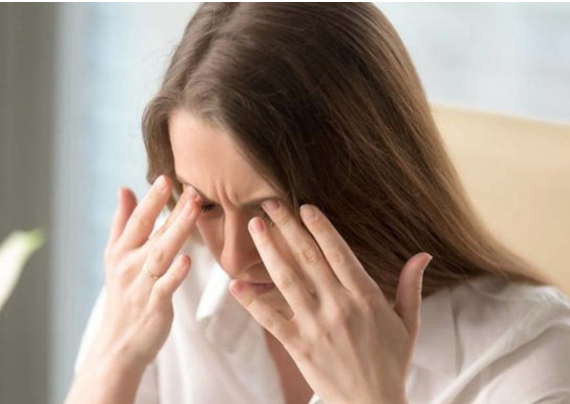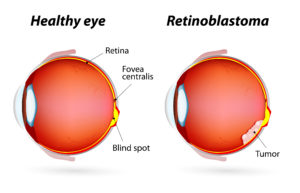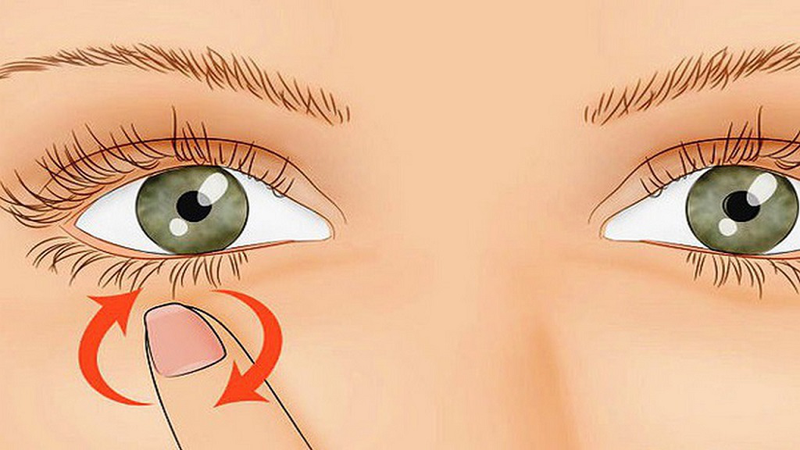Eyelid Twitching: A Superstition or a Sign of an Eye Condition?
Many people believe that frequent eyelid twitching or involuntary blinking is some kind of spiritual sign or omen. However, doctors say that this could actually be your body warning you about an underlying health issue.
What Does Eyelid Twitching Feel Like?
Eyelid twitching is an involuntary, repetitive spasm of the eyelid muscles. It usually affects the upper lid, but sometimes it can happen in the lower lid as well.

For most people, these spasms are very mild—just a slight tugging sensation in the eyelid. But for others, the twitching can be strong enough to make the eye shut momentarily. Some people may not even notice it happening at all.
Episodes typically last a few seconds to a couple of minutes and can occur randomly. The twitching may go away for days, then come back unexpectedly. In many cases, you might not experience it again for weeks or even months.
While eyelid twitching is generally harmless and painless, it can definitely be annoying. Most cases resolve on their own without any need for treatment. But in rare situations, it could be an early sign of a chronic movement disorder—especially if the twitching spreads to other areas of the face or involves uncontrollable facial movements.
When Eyelid Twitching Might Point to a Health Issue
If you notice your eyelid twitching frequently or more intensely than usual, don’t just brush it off. It could be your body trying to tell you something. Here are some possible reasons:
1. A Tumor Behind the Eye

Though extremely rare, a tumor in or around the eye could cause persistent twitching. Tumors can press against nerves and trigger muscle spasms, which may be felt as constant twitching. If you’re experiencing repeated or strong twitching, especially along with other symptoms, it’s a good idea to see an eye specialist for a proper checkup.
2. Too Much Coffee

Your daily coffee habit could be a culprit. Caffeine stimulates the nervous system, which can lead to increased muscle activity—including in the tiny muscles of your eyelids. Because these muscles are especially sensitive, even small changes in your body can set them off.
If you’re consuming too much caffeine, try cutting back to no more than three cups per day to see if the twitching improves.
3. High Levels of Stress
Stress can show up in all sorts of ways—fatigue, irritability, shallow breathing, and yes, even twitchy eyelids. When your body is under pressure, your eyes may respond with these tiny spasms.
If stress seems to be the trigger, some simple lifestyle adjustments like more rest, deep breathing exercises, and time off screens can help a lot.
4. Serious Sleep Deprivation

Lack of sleep doesn’t just make you groggy—it weakens your immune system, messes with your nervous system, and can directly affect your eyes. The muscles around your eyes are among the first to show signs of fatigue.
If you’ve been running on empty, your eyelid twitching may be your body’s way of saying, “I need rest.”
In chronic cases, persistent twitching could indicate a condition called benign essential blepharospasm, which involves ongoing, uncontrollable eyelid movements. This condition usually affects both eyes and can get worse over time. The exact cause is unknown, but it may be aggravated by:
-
Blepharitis (inflammation of the eyelids)
-
Conjunctivitis (pink eye)
-
Dry eyes
-
Environmental irritants like wind, bright lights, sunlight, or air pollution
-
Stress
-
Smoking
Benign essential blepharospasm tends to be more common in women than in men and may lead to blurred vision, light sensitivity, and even facial spasms if left unmanaged.


